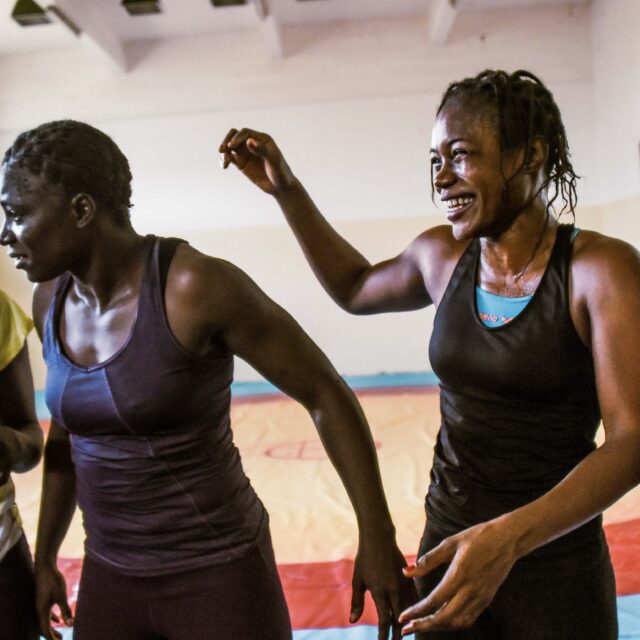In Zimbabwe, only 19% of female students graduate from STEM (science, technology, engineering, and mathematics) subjects, compared to 39% of male students, according to the World Economic Forum. Rose Mlambo and Aretha Mare, co-founders of Techwomen Zimbabwe, want to help bridge that gender gap and foster innovation in their country.
Tech women Zimbabwe uses competitions, workshops, networking, project funding, scholarships, and awards to empower women and girls to venture into STEM-related fields and businesses.
“For us at Techwomen Zimbabwe, we have witnessed the transformation of girls and women,” says Rose. “We have seen how technology can be a critical key to empowerment.”
“Technology and innovation are a source of employment and women constitute the greater number of the jobless population,” she says. “That alone drives us to do what we do.”
Techwomen has helped a number of women and young girls realize their potential in STEM, as well as nurture their prototypes and emerging ideas into highly competent science initiatives.
Mlambo notes that because women have traditionally been marginalised from the science field, they have missed some of the opportunities that the field has to offer – including employment.
“Through this program, we have empowered almost 200 girls on how to use technology to create solutions to everyday problems and make money out of it through entrepreneurship training,” Rose says.
Through its Pamusha Project, Techwomen has managed to engage with women and help get them online in areas like Mbare, a densely populated suburb in Harare. The applications used allowed the women to access new markets, engage with buyers, and sell products. These women can now use the internet to enhance their business and access previously unavailable opportunities.
“In that case, there was limited monetary benefit directly from the applications used, but women were awarded with opportunities to make money and create more financial opportunities through carrying out their business activities online,” says Rose.
One of Techwomen’s most inspiring endeavors, the Technovation Challenge, has helped create employment and sources of income for younger women, in addition to allowing them to innovate potential solutions to the issues that affect them.
One group of girls ages 14 and younger has developed applications such as Junior Study Place, Fashion Fixer, and Uripi, which translates to “where are you?”
Uripi is a mobile application that allows parents to use GPS technology to check on the whereabouts of their young children. An emergency button allows the children to take pictures or record video of suspicious events or people around them. The aim of the app is to reduce cases of missing children.
Techwomen’s high school group is made up of girls ages 18 and younger and, like the under-14 group, they are developing some really innovative applications. One such app, Heart for You, features stories of child-headed families. It allows users to directly support these families through payment of school fees, shopping for groceries, and donation of clothes and other items.
By supporting technology development as well as simply increasing access to the internet for some of the women they mentor, Techwomen and its founders are helping foster exciting innovation in Zimbabwe.



